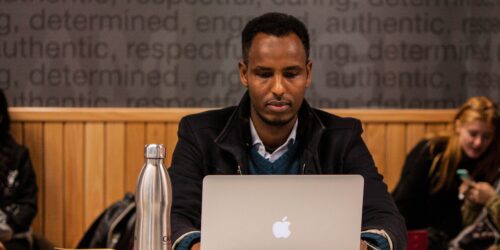
What Did I Do Wrong? What Academic Integrity Means to the International Students
By Dr. Nasreen Sultana, Teaching & Learning Consultant
While no study indicates that international students plagiarize more frequently, there are worries that these students might be at a greater risk of committing plagiarism (Valentine, 2006). International students may often need to realize what makes a work plagiarized. For example, Sanni-Anibire et al.’s (2021) research in the Canadian post-secondary context noted that many international students feel confused about the policy regarding duplicate submission or self-plagiarism.
A recent article published by Asian researchers (Rodrigues, Gupta, Khan, Chatterjee, Sandhu, & Gupta, 2023) indicated how plagiarism is a common cause of unethical publications in the regions of South, East and Southeast Asia due to the existing understanding about plagiarism. The researchers identified reasons such as academic inability, severe deficit in understanding research misconduct, cultural influence, lack of formal educational research ethics and inadequate regulatory measures for academic misconduct. Another study conducted in the context of South African students also revealed the same (Mahabeer & Pirtheepal, 2019). Likewise, in many parts of the world, academic integrity is not as rigorous as in Canada.
International students may need more supports in understanding academic integrity. The challenge becomes severe for them with added pressure from using English as a second language and balancing work and study. Also, many may not realize the importance of producing original work because they may not have encountered this in their previous academic setting.
I was NOT taught about citations even during my undergraduate studies back home. So, for me, plagiarism meant if I copied something from someone else in a live examination. I heard the same from many of my friends from different countries who came to Canada as international students.
Nasreen’s personal experience
Ideas to Manage Plagiarism in the Classroom:
- In the first three weeks of your course, try to run a 5-minute activity to ask what plagiarism means to your students. For example, you can run a Menti word cloud activity asking students what makes a work plagiarized. In this way, you will have ideas from the students, and you can add your ideas if they have missed something.
- When you speak about exams and assignments, refer to the initial conversations and remind students about the importance of maintaining academic integrity.
- When you detect academic misconduct for the first time, follow the policy. For example, if you allow people to get away with the first act of misconduct in your course, you already have allowed a chain of reactions. Students talk to each other. Eventually, you will have more issues regarding plagiarism. Explore our Academic Integrity page to learn more. As a teacher, I demonstrate a firmer expectation in the first few assignments/tests to set the example.
- Clearly lay out in writing the consequences of plagiarism. Discuss about these in the class as well.
- Mention the use of Artificial Intelligence (AI) in your courses, both in written and verbal modes. If there are any restrictions, please mention them in the instructional plan. Reflect on academic integrity and assessment in the age of Artificial Intelligence.
- If you are confused about what to do, please email Teaching and Learning: teachingandlearning@conestogac.on.ca
While supporting the students in their journey of academic integrity, ensure that you are not biased towards them just because they are international students. Many international students sometimes are subjected to perceived plagiarism by the faculty. This can lead to lots of stress, embarrassment and a break of trust between you and your students.
Finally, I would encourage you to develop a sense of trust between you and your students. International students (or any students) do not come to our classroom to cheat. Many international students reported emotions such as fear, confusion and shame when they were accused of academic misconduct (Isbell et al., 2018; Sanni-Anibire et al., 2021). So, this is equally difficult for the students. As classroom teachers, if we start teaching our students about the importance of maintaining academic integrity in their work, they will start following our leads. As faculty, this is our responsibility to maintain the integrity of the courses that we teach.
References:
Isbell, J. K., Chaudhuri, J., & Schaeffer, D. L. (2018). “It Just Messes Your Mind”: U.S. international students’ perspectives of and experiences with academic text sourcing. Journal of International Students, 8(1), 308–331. https://doi.org/10.5281/zenodo.1134309
Mahabeer, P., & Pirtheepal, T. (2019). Assessment, plagiarism and its effect on academic integrity : experiences of academics at a university in South Africa. South African Journal of Science, 115(11–12), 32–39. https://doi.org/10.17159/sajs.2019/6323
Rodrigues, F., Gupta, P., Khan, AP., Chatterjee, T., Sandhu, NK., & Gupta, L. (2023). The Cultural Context of Plagiarism and Research Misconduct in the Asian Region. Journal of Korean medical science, 1–13.
Sanni-Anibire, H., Stoesz, B. M., Gervais, L., & Vogt, L. (2021). International students’ knowledge and emotions related to academic integrity at Canadian postsecondary institutions. International Journal for Educational Integrity, 17(1), 1–15. https://doi.org/10.1007/s40979-021-00088-4






